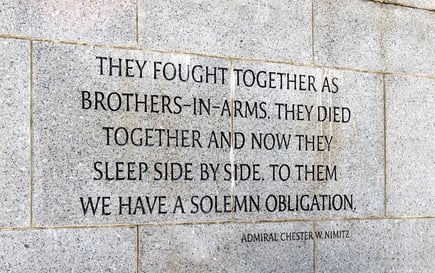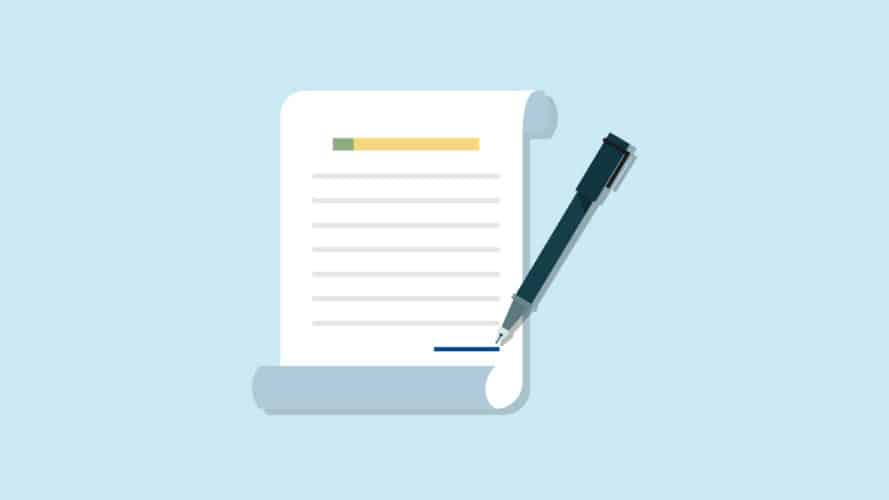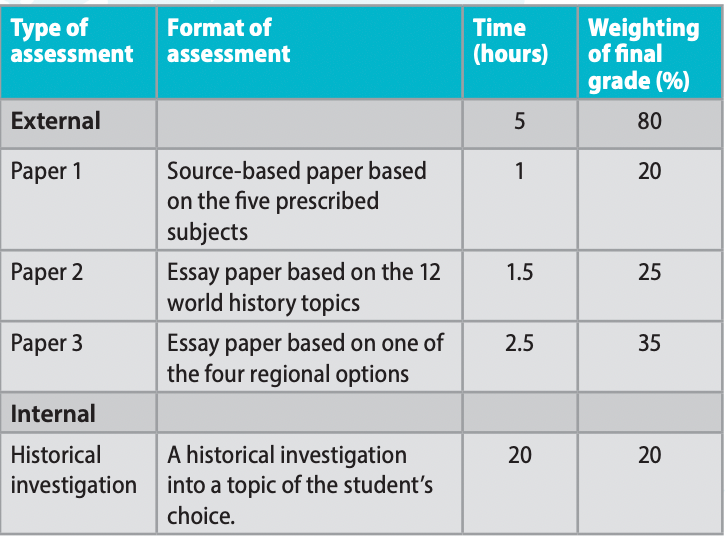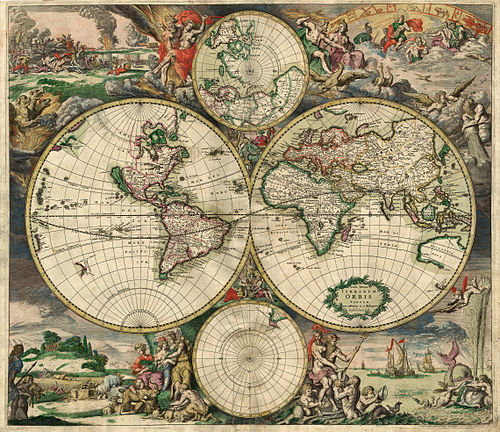

2016-2017 IB Extended Essay: Sample IB EE's
- Workshop 1: Getting started
- Workshop 2: EE Options
- Workshop 3: Selecting a topic
- Workshop 4:Research Questions
- Workshop 5: Supervisors and Reflections
- Finding Books & Ebooks
- Primary Sources
- Citation Guide
- Subject guidance
- Sample IB EE's
|
|
- Biology (2018 new rubric)
- Biology Light Intensity
- Does Age Have an Effect on Short-term Memory of 6 to 18 Year Old Students?
Chemistry:
- Chemistry 1
- What are the Alternative Fuels for the Depleting Fossil Fuels and which is the Best Fuel in Accordance with the Energy Output?
- A Copper Ions
- Chemistry 3
Design Technology
- Does Hull Trim and Balance Affect the Speed of a Boat?
Individuals & Society:
- Market Form of the Retail Petroleum Supply Industry in Parklands
- Economics 1
- Economics 2
- Economics 3
I have an exemplar but the file is too big to upload. If you are interested in this topic I can share the essay with you.
- Geography 2
- History EE (2018 new rubric)
- To What Extent was the Establishment of the State of Israel in Palestine in 1948, Influenced by Theodor Herzl?
Information Technology in a Global Society
- Philosophy 1
- Philosophy 2
- Philosophy 3
- Philosophy 4
- Psychology EE (2018 new rubric)
- Applied Behavior Analysis and Early Intervention: The Extent of Recovery from Autism
- Psychology 1
- Psychology 2
- Psychology 3
Social & Cultural Anthropology
- Social & Cultural Anthropology 1
- Social & Cultural Anthropology 2
World Religions
- To What Extent do the Core Scriptural Teachings of Sikhism Permit them to Marry Outside of the Religion?
- World Religions 1
- World Religions 2
Language Acquisition:
- French: Les Liaisons Dangereuses
Literature & Language
- Journeys in the Inferno and The Wonderful Wizard of Oz
- Toni Morrison
Math:
- Cryptography and Rubik's Cube: An Investigative Analysis
- Pascal's Triangle
Visual Arts:
- How Does the work of Yinka Shonibare Illustrate the Changing Role of African Art in a Global Society?
- Ballet's Accessibility and Costumes Affecting Society's View of the Art Form
- Visual Arts 1
- Visual Arts 4
Interdisciplinary Essays:
Environmental Systems & Societies
- ESS Extended Essay (2018 new rubric)
World Studies
- World Studies EE History, Economics, & Politics (2018 new rubric)
- Does the Production of Dairy and Meat from Dairy Cows in the United States affect the Environment and Well Being of Animals and Humans?
- << Previous: Subject guidance
- Last Updated: May 2, 2024 12:55 PM
- URL: https://lewishs-fcps.libguides.com/IBExtendedEssay
MacGregor Is History
IB Paper 1 2017-2021
These are the Paper One that has been used 2017-2021 : 1. Paper One 2016 Specimen Paper – Source Booklet 2. Paper One 2016 Specimen Paper – Questions 3. Paper One 2016 Specimen Paper – Markscheme 4. Paper One 2017 May – Source booklet 5. Paper One 2017 May – Questions 6. Paper One 2017 May – Markscheme 7. Paper One 2017 November – Source Booklet 8. Paper One 2017 November – Questions 9. Paper One 2017 November – Markscheme 10. Paper One 2018 May – Source Booklet 11. Paper One 2018 May – Questions 12. Paper One 2018 May – Markscheme 13. Paper One 2018 November – Source booklet 14. Paper One 2018 November – Questions 15. Paper One 2018 November – Markscheme 16. Paper One 2019 May – Source booklet 17. Paper One 2019 May – Questions 18. Paper One 2019 May – Markscheme 19. Paper One 2019 November – Source booklet 20. Paper One 2019 November – Questions 21. Paper One 2019 November – Markscheme 22. Paper One 2020 May – Source booklet – Cancelled due to Covid-19 23. Paper One 2020 May – Questions – Cancelled due to Covid-19 24. Paper One 2020 May – Markscheme – Cancelled due to Covid-19 25. Paper One 2020 November – Source booklet 26. Paper One 2020 November – Questions 27. Paper One 2020 November – Markscheme 28. Paper One 2021 May – Source booklet 29. Paper One 2021 May – Questions 30. Paper One 2021 May – Markscheme 31. Paper One 2021 November – Source booklet 32. Paper One 2021 November – Questions 33. Paper One 2021 November – Markscheme
- [email protected]
- Get 21% OFF . Use the code: FIRST21

- History Extended Essay: Definition, Outline, Assessment Criteria
Welcome to the guide on History Extended Essays!
This guide is designed to provide you with an understanding of what a History Extended Essay is, outline the components that need to be included in your paper and provide tips on how to write a successful essay.
This guide will cover:
Definition of a History Extended Essay
Outline of a history extended essay, assessment criteria for history extended essays.
- Brainstorming Process
Writing Strategies
- Citing Sources
Advice on Referencing
Evidence analysis and synthesis, proofreading and finalizing.
By the end of this guide, you should be able to confidently write and submit a History Extended Essay that meets the criteria and will get you the grades you want.
You will learn how to develop great research questions, structure your essay, analyze evidence, and use the right referencing system. We’ll also provide guidance on how to proofread your work and finish it to a high standard.
We hope this guide helps you on your journey to success!

🎓✍️ Struggling with your IB Extended Essay? ✍️🎓 Let our team of expert IB Writers be your guiding light! With an extensive track record of excellence in IB education, we are well-versed in the requirements and expectations of the IB Extended Essay. 🌟 Our accomplished writers are all experienced professionals who will provide you with a personalized and original masterpiece.We do not use AI! We take pride in delivering unique, high-quality extended essays that will impress your professor. Unlock your academic potential with our IB Extended Essay Writing Service today! 💡📚🔝
A History Extended Essay is an essay form that requires a student to provide an in-depth analysis of a chosen topic or event. It typically requires research, evidence collection, and thoughtful reflection on the part of the student. The essay should be structured logically, with a clear beginning, middle, and end. The goal is to demonstrate a thorough understanding of the chosen topic or event and to provide original insights and argumentation.
The essay should contain a thesis statement that sets out the main argument, and the body should then provide evidence and discussion to support the thesis. The essay should have a conclusion that summarises the findings, arguments, and evidence presented. Additionally, it should contain appropriate citations to sources throughout and a bibliography section at the end.
History Extended Essay essays can be written from many different perspectives, including geographical, chronological, political, social, and economic. Good research questions should be open-ended and enable exploration and discovery of multiple viewpoints.
Constructing an effective outline for your History Extended Essay is essential to ensure that you create a clear and cohesive essay. The following advice will help you to create an outline that will enable you to craft a well-structured and successful essay.
Your essay should include three main sections: the introduction, main body, and conclusion. Each section has a particular purpose and contributes to the overall structure and argument of the essay.
Introduction
The introduction of your essay should serve two key purposes. First, you should provide a brief overview of the topic of your extended essay and its context. Second, you should introduce your research question and make it clear to the reader why this is an interesting area of study that is worthy of further investigation.
The main body of your essay should be dedicated to outlining and elaborating upon the evidence that you have gathered in support of your research question. This should include both primary sources such as documents, photographs, and artifacts, and secondary sources such as scholarly works and historical analyses. By carefully examining, analyzing, and interpreting this evidence, you can develop your own arguments and insights in order to answer your research question.
The conclusion of your essay should bring your main argument to a close and suggest future avenues for study. You should also link back to the introduction, summarizing the main points of the essay. This is an important part of the essay because it shows readers what the main point of the essay was and how it reaches a conclusion.
By using these tips, you can ensure that your History Extended Essay has a clear and concise structure that allows you to clearly express your argument. With careful planning and preparation, you can be certain that your essay will be well-written and successful. Good luck!
Understanding the criteria by which your History Extended Essay will be judged is essential to achieving the highest mark. The assessment criteria splits into 5 categories: knowledge and understanding; problem-solving ability; critical thinking; research skills; and writing and presentation. In this section, we will explain each of these criteria in detail.
Knowledge and Understanding
In assessing knowledge and understanding, markers will look to see how well you have absorbed information and facts related to your research question and topic. They will want to know to what extent you have engaged with content which goes beyond the scope of the research question. Further, they will be interested in how you have used that knowledge in constructing a compelling argument in your essay.
Problem-Solving Ability
This criterion focuses on two things: how well you have identified and defined the key problem in your essay and how effectively you have created a solution. Markers will be looking to assess your ability to think pragmatically and solve problems logically. You should pay particular attention to the evidence you present and the structure of your essay when trying to demonstrate your problem-solving skills.
Critical Thinking
To score highly for critical thinking, markers will want to see that you have considered both sides of the argument. Demonstrating critical engagement with the sources you use and providing evidence in support of your own views will be important here. Your essay should also show independent and creative thought, as well as an awareness of wider contexts, such as international or political implications.
Research Skills
To excel at this criterion, you must demonstrate a comprehensive knowledge of different source materials and an understanding of how to best utilize them. You should strive to come to conclusions independently and provide clear evidence in support of those conclusions. In addition, you must ensure that this evidence has been transcribed accurately.
Writing and Presentation
Finally, your essay should be presented impeccably and be free of spelling, grammar and punctuation errors. The essay should have been carefully proofread before handing it in. The content should be clearly structured and organized and the language should be concise and even-toned. Depending on the task, diagrams and illustrations might be necessary, as well as references and bibliography.
Brainstorming Process: How To Develop Brilliant Ideas
Brainstorming is an essential part of writing a successful History Extended Essay. It involves researching, identifying, and analyzing the facts, evidence, and arguments as well as coming up with interesting ideas and research questions.
The first step to brainstorming is to start by asking yourself questions, such as: What would be an interesting topic? What key arguments can I make? What evidence do I need to support those claims? Such questions will help guide your research.
Next, you should research your topic. Start by searching online, reading books, and watching videos or documentaries related to the subject. This will provide you with the necessary information to develop your research question or topic.
Once you have gathered sufficient information, it’s time to analyze it. Ask yourself questions such as: What are the main points? What evidence does each point have? What opposing views exist? By identifying and questioning the different arguments, you will be able to develop more robust and thorough ideas.
Finally, once you have carefully examined the available materials, you should create a list of potential research questions or topics. You should also think of ways to defend or challenge any of the points you have identified. Doing so will help you develop brilliant research questions, evidence and arguments for your essay.
Writing is an essential skill and being able to write effectively with structure, clarity and focus is an invaluable part of success in essay writing. Being able to convey arguments, ideas and facts in a succinct and clear manner is essential for an extended essay . Here are some tips to help you write clearly and effectively.
A well-structured essay is the key to an effective paper. You should start by creating an outline that shows what you plan to cover in each section. Your introduction should be succinct and give a brief overview of the main points of your argument. The body section should include evidence and analysis, using examples when necessary. Finally, your conclusion should draw everything together, summarize the points you have made and provide your reader with any conclusions you have reached.
It’s important to ensure the sentences you use are concise and easy to understand. Make sure to use straightforward language, avoid overly complicated phrasing and make sure each sentence expresses one clear idea. It’s also imperative to break long sentences up into shorter ones and use active voice as much as possible.
In order to write clearly, you must maintain a clear focus throughout your essay. Stick to the point and avoid drifting off topic. Make sure each paragraph has a purpose and don’t engage in digressions or include irrelevant information. You should also ensure that each paragraph connects logically to the one before it and the one after.
Using these strategies when writing your history extended essay can help make sure that your essay is clear, organized and informative. Being aware of these tips and taking the time to incorporate them into your writing process can help you create a successful essay.
Citing Sources – Accuracy and Integrity
When writing a History Extended Essay it is essential that you cite the sources you use in the correct way. Doing so not only strengthens your essay, but also prevents any accusations of plagiarism. Citing your sources accurately shows your reader that you understand the ideas you are writing about and that you have conducted your research responsibly.
By citing your sources you will allow other scholars to identify and verify the information you have gathered for your essay. Every time you refer to a source that is not your own words or ideas, you should acknowledge it by providing a proper citation. Citations are also important when quoting someone else’s ideas, using statistics or any other type of evidence or data.
Failure to accurately cite your sources can lead to accusations of plagiarism, which can have serious consequences. The most common form of plagiarism occurs when you fail to cite a source or incorrectly cite a source.
There are several different citation styles that you need to be aware of before beginning your essay. You should make sure to review each one and decide which will be best for your essay. This guide provides an overview of the different citation methods along with advice on how to use them effectively.
In short, citing your sources accurately and with integrity will ensure that your work is taken seriously and will help to prevent any accusations of plagiarism. It is essential that you familiarize yourself with the different citation styles, and practice citing your sources correctly throughout the writing process.
It is important to reference the sources you use when completing a History Extended Essay. This will demonstrate that you have done your research and allow your essay to be accepted as an academic piece of work. There are several different referencing systems available and it is important to understand how each one works and how to use them effectively.
One common system is the Harvard referencing system. This system requires you to cite the source in the body of the text, followed by a full reference in the bibliography. The ‘in text’ citation should include the author’s name, the year of publication and the page number (if applicable). The full reference should include all the relevant details such as the author’s name, year of publication, specific book title and publisher.
Another popular referencing system is the American Psychological Association (APA) system. This system also requires an ‘in text’ citation and a full reference. The ‘in text’ citation should include the author’s name and year of publication, as well as the page number. The full reference should include all the relevant details, including the author’s name, year of publication, specific book title, place of publication and publisher, as well as any other relevant information.
It is important to make sure that all of the references included in your extended essay are accurate and up-to-date. To make sure this is the case, you should use reliable sources and check the most recent editions of any books you consult. It is also important to check that you have correctly cited the sources in your extended essay, as failure to do so can lead to accusations of plagiarism.
By understanding and correctly using different referencing systems, you can ensure that your extended essay is properly researched and cited. This will help to demonstrate your academic integrity and ensure that your essay is accepted as the pieces of work that it is.
When it comes to writing a History Extended Essay, it’s important to understand the different methods of examining, interpreting, and making use of evidence. Evidence analysis and synthesis can help you to more effectively support your argument when writing an essay.
To begin any analysis and synthesis of evidence, you’ll need to identify the source of the evidence. Ask yourself “Where does this evidence come from?” Is it primary or secondary? What is the author’s perspective? Then, take into account the reliability and accuracy of the source. Also consider the relevancy to your particular topic or argument.
Once you have identified the source, you can start examining and interpreting the evidence. Begin by asking yourself what is being said, and what is the overall opinion of the author? How do they back up their opinion or point of view? Is there bias or any other potential conflict of interest present in the source?
Next, you’ll want to synthesize the evidence. Compile all sources that are related to your argument and look for similarities and differences. You can also compare and contrast different interpretations of the same evidence. This will help you to develop your own opinion on the topic and will enable you to better articulate your argument.
Finally, once you’ve analyzed and synthesized the evidence, make sure that you are able to explain how the evidence ties into your argument. Make sure to cite your sources properly so that your readers can verify where you got your information. Additionally, think about the implications of the evidence and how it might be applicable to other topics or arguments.
Evidence analysis and synthesis is an important part of writing a successful History Extended Essay. By understanding and utilizing these techniques, you will be able to better support your arguments and draw stronger conclusions from your evidence.
Writing A Strong Conclusion
Now that you have completed your history extended essay, it is time to write a strong conclusion to wrap up all of the points discussed. A conclusion should summarize all points made in the essay without introducing new ideas or evidence. Making sure to review and edit following the completion of your first draft is also an important part of the essay-writing process.
When summarizing the points of your essay, it is helpful to revisit the thesis statement and main argument of your paper. Make sure to include the key points and conclusions that you’ve reached in your research. Additionally, be sure to demonstrate how the argument you set out to make in the introduction ties together in the end.
Editing and revising are important steps in creating a great essay. Read over each sentence, making sure that your arguments make sense and flow logically. Check for any grammar and spelling mistakes, and pay special attention to the structure of your sentences. If you feel stuck or confused during this process, looking at model essays can be helpful.
Finally, make sure to follow the citation rules. Be sure your sources are correctly cited and the references are accurate. Citing your sources correctly shows that you have done your research and supports your argument.
Conclusion writing can be tricky, but with the right approach and some practice, you can create a strong conclusion for your History Extended Essay. By following these steps, you can ensure that your essay reaches its full potential and makes a lasting impression on its readers.
Appendix: Examples of Extended Essay Outlines and Evaluation Criteria
Included in the appendix section is an optional resource of sample examples that can help guide you in writing your extended essay. It will include a list of extended essay outlines, evaluation criteria and a recommended reading list. This resource can be beneficial to student’s when brainstorming topics, developing research questions or revising your paper before submission.
Extended Essay Outlines
An extended essay outline will help students define the structure of their paper and organize their argument. The outline will provide a framework for the student to follow and ensure that the points discussed clearly explain the topic question. The outline should also include evidence, analysis and synthesis.
- The introduction should explain the context of the essay and the research question.
- The main body of the essay should include the literature review, analysis of evidence and conclusion.
- The end of the essay should wrap up the argument and discuss the implications of the research.
Evaluation Criteria
When it comes to evaluating an extended essay, there are certain criteria that students should be aware of. The essay should be evaluated based on the research question, the quality of evidence presented, the relevance of the sources used and the way in which the student has synthesized and analyzed the evidence.
- The essay should answer the research question clearly and accurately.
- The source of evidence used must be reliable and up-to-date.
- The evidence should be used to support the argument and conclusions of the essay.
- The structure and language of the essay should be clear and concise.
- Analysis and synthesis of the evidence should be detailed and accurate.
Recommended Reading List and Other Resources
It is important to keep up to date with the latest publications and resources available in order to write an effective extended essay. Here is an example of possible resources that can be included in your reading list: academic journals, books, reports, websites, and interviews.
To ensure accuracy, accuracy and integrity of sources, it is important to cite each resource clearly in your paper. Recommended citation style vary depending on the course being studied, so it is best to check with your professor which citation style to use.
In conclusion, a comprehensive appendix section can be a great asset for writing a successful history extended essay. It can provide additional knowledge and resources for students to refer to in the organization of their paper and to evaluate the success of their writing.
Proofreading and finalizing your History Extended Essay before submission is a crucial step that can mean the difference between success and failure. It is important to take the time to proofread your essay to ensure it is of the highest possible quality.
Before you begin proofreading, read through the essay and assess it for any possible errors. Take the time to review for mistakes in terms of accuracy, spelling, grammar, and style, as well as any incomplete information or incorrect facts.
Once you have identified potential errors and mistakes, begin making corrections where necessary. Pay attention to errors in punctuation and formatting, as well as facts that may need to be revised. Also, check for consistency in style, structure, and formatting throughout the document.
It is also important to check that all sources are cited correctly, and that any quotations used are accurate and referenced properly. Then, review the essay one last time to make sure that all corrections have been made.
Finally, be sure to check the essay against the criteria outlined by the assignment and make any necessary adjustments. Once you have proofread the essay and made all necessary corrections, you should feel confident that your History Extended Essay is complete and ready for submission.
- Last Edit 11 May 2023

Nick Radlinsky
Nick Radlinsky is a devoted educator, marketing specialist, and management expert with more than 15 years of experience in the education sector. After obtaining his business degree in 2016, Nick embarked on a quest to achieve his PhD, driven by his commitment to enhancing education for students worldwide. His vast experience, starting in 2008, has established him as a reputable authority in the field.
Nick's article, featured in Routledge's " Entrepreneurship in Central and Eastern Europe: Development through Internationalization ," highlights his sharp insights and unwavering dedication to advancing the educational landscape. Inspired by his personal motto, "Make education better," Nick's mission is to streamline students' lives and foster efficient learning. His inventive ideas and leadership have contributed to the transformation of numerous educational experiences, distinguishing him as a true innovator in his field.
📚🔍 Explore a Wide Range of IB Extended Essay Topics! 🔍📚
- IB History Extended Essay Topics
- How Long is Extended Essay? Minimum and Maximum Word Count
- Psychology Extended Essay Topics
- Computer Science Extended Essay Topics
- IB EE vs IA. What are the Main Differences?
- Literature Extended Essay Topics
- Law Extended Essay Topics and Tips
- How to Write a Winning IB Business Management Extended Essay
- How Long Does It Take to Write an IB Extended Essay?
- How to Pick an Interesting Topic for Your Extended Essay
- How to choose a research question for your IB extended essay

What Are the Easiest and Hardest Extended Essay Subjects?
In this article, we discuss the easiest and hardest extended essay subjects, providing insights to help you make an informed decision. From the creative freedom found in the Arts to the demanding nature of the Experimental Sciences, we break down into what makes a subject approachable or daunting.

Failed Your Extended Essay? What to Do?
In this article, I’ll consider the immediate steps you should take after receiving an EE score that didn’t meet your expectations. We’ll discuss how to analyze feedback effectively, manage your emotions, and consider whether a retake is the right choice for you. If a retake isn’t feasible, we’ll look at alternative paths that can still lead you to diploma success.

What to Do If You Fail Your TOK Essay?
Failing your TOK essay can be disheartening, but it’s not the end of your IB path. As a seasoned IB writer, I understand the intricacies of the TOK essay and the common pitfalls students face. In this article, I’ll guide you through practical steps to reassess, revise, and rebound from a failing grade.

What to Do if You Don’t Pass Your IB IA and How to Succeed Next Time
Overcoming the challenges of failing an IB Internal Assessment can be daunting, but it’s not the end of your academic path. This article provides a comprehensive guide on the immediate actions to take if you don’t pass your IA, including analyzing feedback and consulting with your teachers. We’ll discuss opportunities for resubmission, the strategies for improving your work, and long-term tactics to prevent similar setbacks.

IB Referencing in Writing | Citations Guide for Students
This comprehensive guide provides you with the tools and knowledge you need to cite sources accurately, thereby enhancing the credibility and integrity of your academic work. From understanding different citation styles to implementing them effectively in your essays, this article serves as your go-to manual for all things referencing.

When to Submit Extended Essay? IB EE Deadlines
Managing the deadlines for your IB extended essay can seem daunting, but with the right guidance, it’s completely manageable. This article breaks down the critical deadlines you need to know in order to successfully plan and execute your extended essay.
© 2024 I Bstudenthelp.com. This website is owned and operated by Udeepi OU Harju maakond, Tallinn, Lasnamäe linnaosa, Sepapaja tn 6, 15551. Disclaimer : Services we provide are only to assist the buyer like a guideline to complete any kind of writing assignment. Privacy Policy Terms and Conditions Cookie Policy Revision Policy Refund Policy

Choose Your Test
- Search Blogs By Category
- College Admissions
- AP and IB Exams
- GPA and Coursework
The Best IB History Notes and Study Guide for SL/HL
International Baccalaureate (IB)

If you want to do well on the IB History exam, you'll need to have a solid set of notes to study from. This can be difficult though if you're missing notes or feel like some of your own notes don't cover certain topics in enough depth. Luckily, we're here to help! We've assembled the best FREE online IB History notes into this complete study guide.
feature image source: Mount Rushmore Monument America /Pixabay
What's the Format of the IB History Exam?
There are five prescribed subjects for IB History SL and HL:
- Military leaders
- Conquest and its impact
- The move to global war
- Rights and protest
- Conflict and intervention
Your teacher will choose one that you'll cover, and you'll be tested on this for paper 1 (one hour in length).
There is also a list of twelve world history topics. For paper 2 (1.5 hours), you'll cover two of these:
- Society and economy (750-1400)
- Causes and effects of wars (750-1500)
- Dynasties and rulers (750-1500)
- Societies in transition (1400-1700)
- Early Modern states (1450-1789)
- Causes and effects of Early Modern wars (1500-1750)
- Origins, development and impact of industrialization (1750-2005)
- Independence movements (1800-2000)
- Emergence and development of democratic states (1848-2000)
- Authoritarian states (20 th century)
- Causes and effects of 20 th -century wars
- The Cold War: superpower tensions and rivalries (20 th century)
If you're taking IB History HL, you'll also have a final paper (Paper 3) that is 2.5 hours and will cover one of the four Depth Studies:
- History of Africa and the Middle East
- History of the Americas
- History of Asia and Oceania
- History of Europe
If you're interested in taking a look at the entire IBO IB History Guide , you can find it as a .pdf here.
How to Use This IB History Study Guide
If you're hoping for help on one subject, use Command + F to search this guide for specific IB History notes about that subject. As an example, if you want to read about the Cold War, use Command + F to cue the search function. Then type "Cold War," and it'll bring up all of the study materials for the Cold War.
The resource is separated into:
- Quick reference: one-page summary of material if you just need a quick refresher.
- Longer notes: notes (generally 3-10 pages) if you need more of an in-depth explanation.
- Flashcards: online quizzes of key terms.
Common Study Mistakes for IB History SL/HL
Two common mistakes are:
- Trying to ignore the topics you didn't comprehend from your teacher's lesson. If you didn't understand it in class, you need to find additional assistance through this IB History study guide or tutoring. You're still going to be tested over this material whether you understood it in class or not!
- Only trying to learn the material a week or two before the IB papers. There is too much history to learn—one or two weeks will not be enough time to learn it (that's why IB History SL/HL is spread over a year or two). The best solution is keeping up in class and studying the material throughout the year.

Current IB History Guides
Because IB History was recently updated, there aren't that many current notes and study guides, but we've found the best available. These guides follow the syllabus of the current version of IB History. If you are studying the same topics these notes cover, they are a great resource to use because they hit all or most of the main topics you need to know to be well prepared for the IB History exam. There are guides that cover multiple topics as well as guides that cover a single topic.
Multi-Topic Guides and Overviews
IB History Duck covers similar topics. This guide focuses primarily on authoritarian leaders such as Hitler, Mao, and Stalin, as well as the Cold War, histories of China, the USSR, and Imperial Japan.
The Student Room has a plethora of resources for you. Just keep in mind that notes for the 2017 syllabus are mixed in with information from earlier exams , so make sure you're accessing and studying the correct material.
Single Topic Guides
These are notes on single topics that you'll cover on the IB syllabus.
Prescribed Topics: Military Leaders
- Military leaders overview
- Ghenghis Khan (c1200-1227) unit
- Richard I of England (1173-1199) unit
Prescribed Topics: Conquest and Its Impacts
- General overview of ideas you should know
- The final stages of Muslim rule in Spain
- The conquest of Mexico and Peru (1519-1551)
Prescribed Topics: Move to Global War
- Move to global war Prezi notes
- Move to global war longer notes
- Japanese expansion in East Asia (1931-1941)
- German expansion (1933-1940) unit
- Italian expansion (1933-1940)
Prescribed Topics: Rights and Protest
- Rights and protest US Civil Rights overview
- Rights and protest Apartheid South Africa overview
- Rights and protest complete unit
Prescribed Topics: Conflict and Intervention
- Conflict and Intervention general overview
- Conflict and Intervention workbook
- Conflict and Intervention Rwanda flash cards
World History Topics: Society and Economy
- Standard level economics brief
- Higher level economics brief
World History Topics: Causes and Effects of Wars (750-1500)
- Causes and effects of Medieval wars unit
World History Topics: Dynasties and Rulers (750-1500)
Dynasties and rulers (750-1500) unit, world history topics: societies in transition.
- Societies in transition Prezi
World History Topics: Early Modern States (1450-1789)
- Ferdinand/Isabella
- Charles I/Phillip II
- Henry VII (1485-1509)
- Henry VIII (1509-1529)
- Henry VIII (1529-1547)
- Edward VI (1547-1553)
- Mary I (1553-1558)
- Elizabeth I (1558-1603)
World History Topics: Causes and Effects of Modern Wars (1500-1750)
- Causes and effects of modern wars unit
World History Topics: Origins, Development and Impact of Industrialization (1750-2005)
- Origins, development, and impact of industrialization notes
World History Topics: Independence Movements
- Independence movements longer notes
- Independence movements flashcards
- Independence movements
World History Topics: Emergence and Development of Democratic States
- Evolution and development of democratic states overview
World History Topics: Authoritarian States (20th Century)
- Authoritarian states longer notes
- Authoritarian states (20th century)
World History Topics: Causes and Effects of 20th Century Wars
- Causes and effects of 20th Century wars general overview
- Causes and effects of 20th Century wars unit
World History Topics: The Cold War — Superpower Tensions and Rivalries (20th Century)
- Origins of the Cold War unit outline
- Origins of the Cold War event overview
- Origins of the Cold War longer notes
HL Depth Studies: History of Africa and the Middle East
- Africa and the Middle East unit
HL Depth Studies: History of the Americas
- History of the Americas longer notes
- History of the Americas unit
HL Depth Studies: History of Asia and Oceania
- History of China and Oceania longer notes
- History of China and Oceania unit
HL Depth Studies: History of Europe
- History of Europe longer notes
- History of Europe unit

Past IB History Guides
These notes are based on the older (pre-2017) version of IB History. They won't fit the syllabus you're currently following in class, but since the two versions cover many similar concepts, they can still be useful for learning more about a specific topic. Just be sure not to use them as your main study resource because they may not focus on the exact same areas you're expected to know.
Peacemaking, Peacekeeping - International Relations 1918-36
- 1.1 Aims of the participants and peacemakers: Wilson and the fourteen points
- 1.2 Terms of the Paris Peace Treaties 1919-20: Versailles, St Germain, Trianon, Neuilly, Sevre
- 1.3 The geopolitical and economic impact of the treaties on Europe and the mandate system
- 1.4 Enforcement of the provisions of the treaties: US isolationism, the retreat from the Anglo-American Guarantee, Disarmament-Washington, London and Geneva Conferences
- 1.5 The League of Nations: effects of the absence of major powers, the principles of collective responsibility, and early attempts at peacekeeping (1920-25)
- 1.6 The Ruhr Crisis (1923), Locarno and the Locarno Spring
- 1.7 Depression and threats to international peace and collective security, Manchuria (1931 to 1933) and Abyssinia (1935 to 1936)
- The Peace Treaties after World War One
- The League of Nations in the 1920s
- The Wall St. Crash / Depression
- The League of Nations in the 1930s
Communism in Crisis 1976–89
- 2.1 The struggle for power following the death of Mao Zedong, Hua Guofeng, the reemergence of Deng Xiaoping and the defeat of the Gang of Four
- 2.2 China under Deng Xiaoping, economic policies and the Four Modernizations
- 2.3 China Under Deng Xiaoping, Political Changes And Their Limits, Culminating In The Demonstrations In Tiananmen Square
- 2.4 Domestic and foreign problems of the Brezhnev era, economic and political stagnation, Afghanistan
- The Cold War c.1945-55
- The Cold War c.1955-91
- The Korean War c.1950-53
Causes, Practices and Effects of Wars
- World War One
- Causes of WW1
- Course / Effects WW1
- The Peace Treaties
- German Involvement in Spanish Civil War
- Causes of the Chinese Civil War
- Causes of WW2
The Cold War
Democratic states—challenges and responses.
- Weimar Germany
Origins and Development of Authoritarian and Single-Party States
- Tsarist / Revolutionary Russia
- Stalin's USSR
- Additional Stalin's USSR materials
- Hitler's Germany

- Cold War Origins
Aspects of the History of the Americas
- United States Civil War: Causes, Course and Effects 1840-1877
- Emergence of the Americas in Global Affairs 1880-1929
- Political Developments in the Americas after the Second World War 1945-79
- The Cold War and the Americas
- Civil Rights and Social Movements in America
Aspects of the History of Europe and the Middle East
#1: The French Revolution and Napoleon
- Longer notes
#2: Unification and Consolidation of Germany and Italy
#3: The Ottoman Empire
#4: Western and Northern Europe 1848-1914
#5: Imperial Russia, Revolutions, Emergence of Soviet State 1853-1924
- Longer notes: Tsarist and Revolutionary Russia to 1924
- Longer notes: Alexander II
- Longer notes: Alexander III
- Longer notes: Nicholas II
#6: European Diplomacy and the First World War 1870-1923
- Longer notes: Causes of WW1 , Course / Effects WW1 , the Peace Treaties

#7: War and Change in the Middle East 1914-49
- Longer notes: The Peace Treaties after World War One
- Longer notes: The League of Nations in the 1920s
- Longer notes: The Wall St. Crash / Depression
- Longer notes: The League of Nations in the 1930s
- Khrushchev and Brezhnev
- Causes for the Collapse of Communism in Europe
#10: The Second World War and Post-War Western Europe 1939-2000
#11: Post-War Developments in the Middle East 1945-2000
- Longer notes: European Option

What's Next?
Looking for more practice material for IB History? Then you'll definitely want to delve into our complete collection of free and official past IB history papers .
Interested in brushing up on some of your historical knowledge? Read about the Platt Amendment , checks and balances in the US government (as well as how the executive branch checks the judicial branch ), and lighthouse keeper Ida Lewis .
Alternatively, boost your esoteric knowledge by learning about the history of the three-hole punch and the real story of David Ghantt and the Loomis Fargo heist .
Finally, you can get practice materials for other IB classes on our blog:
- Every IB Biology Past Paper Available: Free and Official
- Every IB Business and Management Past Paper Available: FREE and Official
- Where to Find IB Chemistry Past Papers - Free and Official
- Every IB Economics Past Paper Available: Free and Official
- Every IB English Past Paper: Free and Official
- The Complete IB Extended Essay Guide: Examples, Topics, and Ideas
- Every IB Geography Past Paper Available: Free and Official
- Every IB Math Past Paper: Free and Official
- Where to Find IB Physics Past Papers - Free and Official

Trending Now
How to Get Into Harvard and the Ivy League
How to Get a Perfect 4.0 GPA
How to Write an Amazing College Essay
What Exactly Are Colleges Looking For?
ACT vs. SAT: Which Test Should You Take?
When should you take the SAT or ACT?
Get Your Free

Find Your Target SAT Score
Free Complete Official SAT Practice Tests
How to Get a Perfect SAT Score, by an Expert Full Scorer
Score 800 on SAT Math
Score 800 on SAT Reading and Writing
How to Improve Your Low SAT Score
Score 600 on SAT Math
Score 600 on SAT Reading and Writing
Find Your Target ACT Score
Complete Official Free ACT Practice Tests
How to Get a Perfect ACT Score, by a 36 Full Scorer
Get a 36 on ACT English
Get a 36 on ACT Math
Get a 36 on ACT Reading
Get a 36 on ACT Science
How to Improve Your Low ACT Score
Get a 24 on ACT English
Get a 24 on ACT Math
Get a 24 on ACT Reading
Get a 24 on ACT Science
Stay Informed
Get the latest articles and test prep tips!

As an SAT/ACT tutor, Dora has guided many students to test prep success. She loves watching students succeed and is committed to helping you get there. Dora received a full-tuition merit based scholarship to University of Southern California. She graduated magna cum laude and scored in the 99th percentile on the ACT. She is also passionate about acting, writing, and photography.
Ask a Question Below
Have any questions about this article or other topics? Ask below and we'll reply!

How to Write a History Essay in IB
For a history essay, researching what we were studying was the most engaging method for understanding the material. I did well in history because I genuinely enjoyed the subject. Pay attention in class, look up videos on your own time, and explore different perspectives – hopefully you’ll enjoy the subject enough to have fun working on it too. This extra research while also be the foundation of your essay.
A strong thesis will provide an effective introduction to your history essay, so it is important to understand what you want to say with your essay and to spend some time refining the statement. I would suggest focusing on three major points in your thesis that you intend on developing in your essay.
As for the conclusion, this is where I would reframe your thesis as well as some of the main arguments and counterarguments you brought up in the body of the essay.
Now onto some broader essay tips. Don’t merely list the facts of an event, say why they matter and what they add to your argument. Adding counter arguments and debunking them is also key to building a strong argument. In addition, making essay outlines is probably my second best tip. They helped me structure my thoughts in order to deliver well-constructed arguments. Discussing the events in class and with friends also helped with recalling the information.
My best tip is to use historiography. Knowing the views and stances of different historians not only helped my understanding but is one of the criteria for a highly marked essay. Also, I find that knowing historiography helps greatly with structuring the essay, because you are able to interpret, interconnect and articulate events and evidence.
History is a fun course, and although it does consist of a lot of writing, with the right approach and attitude, I’m sure you can excel!
You may also like…
- Joanne’s thoughts on how to approach a History EE
- Tyus’s tips on how to get an A on your History EE
- Find IB information about History here
Share this:
Leave a reply cancel reply, discover more from iblieve.
Subscribe now to keep reading and get access to the full archive.
Type your email…
Continue reading
EE Examples
Elevate your Extended Essay game for free! Get access to our unbeatable collection of Free EE Examples and score big on your IB exams.

Sell Your EE For $10 a pop!
Happy to give you $10 for every EE so we can give it away for free!
Top IA examples. Learn and excel.
Outstanding EE examples. Draft with confidence.
High-scoring IOs. Enhance your performance.
Exemplary TOK essays. Master your writing.
Top TOK exhibitions. Impress in assessments.
To What Extent Does Lack Of Support Influence The Development Of Depressive Symptoms In Transgender People Among Other Sociocultural Factors?
Explore the impact of support on transgender mental health in this insightful IB Psychology HL Extended Essay. Discover sociocultural influences and more.
¿En Qué Medida Fueron Efectivos Los Mecanismos De Control De Parte Del Nazismo Sobre La Pintura A Lo Largo Del Gobierno De Hitler (1933 - 1945) En Alemania?
Uncover The Effectiveness Of Nazi Control Over Art In Hitler's Germany Through This Sample IB History Core EE. Delve Into The Period From 1933 To 1945.
What Are The Most Significant Geographical Factors Affecting The Price Of Public Housing In Singapore?
Discover How Geographical Factors Influence Public Housing Prices In Singapore Through Our Expert IB Geography HL Extended Essay.
The Impact Of The New Railway Catering Policy On Consumer Consumption In The Mumbai Railway Food Catering System In Maharashtra India?
Discover How The New Railway Catering Policy Transforms Consumer Consumption In Mumbai's Railway Food System In Maharashtra, India. Dive Into This Insightful IB Economics HL Sample.
¿De Qué Manera Las Decisiones Estilísticas En La Invención De Morel Influyen En El Paso De Lo Inverosímil A La Verosimilitud Neofantástica?
Discover How Stylistic Choices In "La Invención De Morel" Transform The Unbelievable Into Neo-Fantastic Realism. A Deep Dive Into Spanish HL IB Sample IA.
¿De Qué Manera Lo Absurdo Y El Sinsentido Generan Un Dualismo Entre El Ser Y El Parecer En Los Cuentos "El Otro Yo”, “el Altillo” Y “acaso Irreparable” De “la Muerte Y Otras Sorpresas” Título Del Libro De Cuentos De Mario Benedetti?
Explore The Dualism Between Being And Appearing In Mario Benedetti's "La Muerte Y Otras Sorpresas" Stories Through Absurdity And Nonsense. Dive Into This Sample EE.
The Significance Of Apple's Unique Selling Proposition (USP) In Establishing Its Dominance Within The Consumer Electronics Industry.
Discover How Apple's Unique Selling Proposition Ensured Its Leadership In Consumer Electronics. Explore This Insightful IB Business Management HL Extended Essay.
How Was Language Used By The British Press To Portray The 2015 European Migration Crisis?
Discover How The British Press Used Language To Portray The 2015 European Migration Crisis In This Sample IB English Language And Literature HL Extended Essay.
The Effectiveness Of Hong Kong's 2022 E-Cigarette Ban
Discover How Hong Kong's 2022 E-Cigarette Ban Impacts Public Health And Economy In This Insightful IB Economics HL Extended Essay Sample. Dive In For Key Insights!
To What Extent Did The Nazi Military’s Superior Strategy Secure A German Victory During The Battle Of France In 1940?
Discover How The Nazi Military's Superior Strategy Secured Victory During The 1940 Battle Of France In This Insightful IB History SL Extended Essay.
Explore How The New Railway Catering Policy Impacts Consumer Consumption In Mumbai's Railway Food System. Discover Key Insights In This Sample IB Economics SL EE.
How Game Theory The Use Of Vectors And Algorithms Contribute To The Effective Operation Of Today’s Chess Engines?
Discover How Game Theory, Vectors, And Algorithms Revolutionize Modern Chess Engines For Unmatched Strategy And Precision. Dive Into The Mechanics Of Chess Mastery!
How Does American Psycho Depict How Our Environment Shapes Toxic Masculinity Through The Characterization Of Patrick Bateman?
Discover How American Psycho Depicts The Influence Of Environment On Toxic Masculinity Through Patrick Bateman's Characterization In This Sample IB English A LAL SL EE.
The Trope Of Inner Journey In Salvaging The Dichotomized Entities
Unlock The Secrets Of Inner Journeys In IB English: A Sample EE Analyzing Dichotomized Entities. Explore Expert Insights On Salvaging Complex Themes.
An Analysis Of Order And Authority In The Knight’s Tale
Discover Insights On Order And Authority In The Knight's Tale With This Comprehensive Sample EE For IB English A Literature SL. Click To Explore Now!
How Authors Prompt Readers To Empathise With Villains In Literature
Explore How Authors Prompt Readers To Empathize With Villains In Literature Through This Sample IB English A LAL Core EE. Unlock The Secrets Behind Complex Characters
A Comparative Study Of The Impacts Of The Covid-19 Pandemic On The Hospitality Industry In Switzerland & Madagascar
Discover A Comparative Study Of The Impacts Of The Covid-19 Pandemic On The Hospitality Industry In Switzerland And Madagascar. Insightful And Comprehensive Analysis Awaits.
How Does Gurnah Use Characterization And The Motif Of Dislocation To Reveal Social Struggles In Colonial East Africa In Paradise?
Meta Description: Unlock The Secrets Of Social Struggles In Colonial East Africa Through Gurnah's Masterful Use Of Characterization And Motifs In Our Sample EE.
How Can The Application Of Daniel Pink's Motivation Theory Help Google Boost Its Employee Engagement In A Post - Covid Era?
Discover How Daniel Pink's Motivation Theory Can Boost Google's Employee Engagement In A Post-Covid Era. Explore This Sample IB Business Management SL EE Today!
South Africa’s Alcohol Ban During The Covid-19 Pandemic
Discover The Impact Of South Africa’s Alcohol Ban During The COVID-19 Pandemic In This Insightful IB Economics SL Extended Essay Sample. Learn More About Economic Effects.
How Does Activation Voltage Depend On The Wavelength Of LED Radiation Measured In The Range 400 To 800 nm And How Can This Information Be Used To Measure Planck’s Constant?
Discover How Activation Voltage Depends On LED Wavelengths (400-800 nm) And Learn How To Measure Planck’s Constant In This Sample IB Physics SL Extended Essay.
What Market Structure Best Represents International School Tuition Centers In Hong Kong?
Discover The Market Structure Representing International School Tuition Centers In Hong Kong. Unveil Insights With This Sample EE For IB Economics SL.
How Is The Price Elasticity Of Demand For Sports Drinks At My School
Explore A Sample EE For IB Economics SL: Analyzing Price Elasticity Of Demand For Sports Drinks At School. Discover Key Insights And Practical Applications.
Investigation Of The High School Students Demand Of Bus Tickets For Local Bus Transportation In Tampere Finland
Explore The Demand For Bus Tickets Among High School Students In Tampere, Finland. Discover Insights From This Sample IB Economics SL Extended Essay.
A Socialist Spectacle An Investigation Into Salvador Allende’s Effectiveness As President
Discover A Socialist Spectacle: An Investigation Into Salvador Allende’s Effectiveness As President In This Sample IB History SL Extended Essay.
To What Extent Is It Fair To Say That The Warsaw Ghetto Uprising Of 1943 Was Doomed To Fail
Discover How The 1943 Warsaw Ghetto Uprising Challenged Fate And Made History. An In-Depth Sample IB History SL Extended Essay Analysis Awaits. Explore Now!
To What Extent Did The Influence Of The British Raj Prove To Be Beneficial For Karachi?
Discover How The British Raj's Influence Shaped Karachi's History In This Compelling Sample IB History SL Extended Essay. Dive Deep Into The Benefits And Impacts Today.
To What Extent Did Ideological Differences Instigate The Deterioration Of Sino-Soviet Relations Thereby Leading To The Sino-Soviet Split Of 1963
Discover How Ideological Differences Fueled The Sino-Soviet Split Of 1963 In This Sample IB History SL Extended Essay. Explore Key Events And Influential Factors.
To What Extent Can Anne Boleyn Be Regarded As The Key Figure In Henry VIII’s Reformation Of The Church In England?
Discover How Anne Boleyn Shaped Henry VIII’s Church Reformation. Explore Her Influence And Role In England’s Historic Religious Transformation. Perfect For IB History SL.
Stalin, Mao & The Chinese Intervention In The Korean War (1950-53)
Discover How Stalin And Mao Shaped The Korean War: An In-Depth IB History Sample EE On The Chinese Intervention In The Korean War (1950-53).
A Reflection Of The Cold War Or A Soviet Attempt To Meddle In A Sovereign Nation’s Affairs?
Explore The Cold War's Impact On Sovereign Nations Through This Sample IB History EE – A Compelling Analysis Of Soviet Influence And Political Intrigue.

The Aims, Process And Effects Of Collectivisation Of Agriculture, 1940-1949
Unlock The Secrets Of Agricultural Collectivisation: Dive Into The Aims, Process, And Effects From 1940-1949 In This Comprehensive IB History SL Sample EE.
To What Extent Was The Nationalists’ Victory In The Spanish Civil War The Result Of Foreign Assistance From Adolf Hitler And Benito Mussolini?
Unlock The Secrets Of The Spanish Civil War: Discover How Foreign Aid Influenced The Nationalists' Victory In This Sample IB History SL Extended Essay.
The Failure Of The German V-Weapon Program 1943-45
Explore The Secrets Behind The Failure Of The German V-Weapon Program During 1943-45 In This Sample IB History SL Extended Essay. Unlock Historical Insights Now!
Was The Hitler Youth Successful In Providing Supporters For The National Socialists
Discover How The Hitler Youth Shaped Future National Socialist Supporters In This Comprehensive IB History SL Extended Essay Sample.
To What Extent Did King George VI & Queen Elizabeth’s Policy Strengthen British Morale During The Second World War?
Discover How King George VI & Queen Elizabeth’s Policy Boosted British Morale During WWII In This Sample EE For IB History SL.
For What Reasons Was Margaret Thatcher Able To Win The 1983 General Election
Explore Why Margaret Thatcher Won The 1983 General Election Through This Sample IB History SL Extended Essay. Discover Key Factors And Historical Insights.
An Evaluation Of The Causes Of The Barcelona May Days 1937 According To Contemporary Commentators & Later Historians
Explore The Causes Of The Barcelona May Days 1937 Through The Eyes Of Contemporary Commentators And Later Historians. Discover Unique Insights And Historical Perspectives.
An Assessment Of The Apartheid Years, Leading To The Insurrections Of 1983- 1986, And Second State Of Emergency On June 12, 1986
Explore An In-Depth Assessment Of Apartheid Years, Leading To The Insurrections Of 1983-1986, And The Second State Of Emergency On June 12, 1986
An Investigation Into Salvador Allende’s Effectiveness As President
Discover An Insightful Sample EE On IB History SL: An Investigation Into Salvador Allende’s Effectiveness As President. Explore Detailed Analysis And Critical Evaluations.
To What Extent Is There A Correlation Between The Number Of Employees And The Marginal Profit, The Number Of Employees And The Total Profit Over The Period From The Year 2010 To 2019, Determined Using Differentiation, Integration Of Logarithmic, Trigonometric, Inverse Trigonometric, Exponential, Polynomial Functions And Regression Analysis
Discover The Role Of Financial Mathematics In Correlating Employee Count, Marginal Profit, And Total Profit With This Comprehensive IB Mathematics AI SL Sample EE.
Time Frame Analysis Of Stock Prices At Amazon Using Financial Mathematics
Explore The Time Frame Analysis Of Amazon Stock Prices Using Financial Mathematics In This Sample IB Mathematics AI SL Extended Essay. Unlock Insights Today.
To What Extent Mathematical Analysis Of Variation Of Stock Prices In The Time Domain Can Be Used To Predict The Ideal Business Transactions In Stock Market For Amazon Inc. Using Differentiation, First Order And Second Derivative And Calculus?
Unlock The Secrets Of Financial Mathematics: Discover A Sample IB Math EE On Amazon Stock Price Time Frame Analysis. Perfect For IB Math AA SL Students Seeking Insights.
To What Extent Is There A Correlation Between The Number Of Employees And The Marginal Profit, The Number Of Employees And The Total Profit Over The Period From The Year 2010 To 2019, Determined Using Differentiation, Integration Of Logarithmic, Trigonometric, Inverse Trigonometric, Exponential, Polynomial Functions And Regression Analysis?
Explore How Financial Mathematics Uncovers The Correlation Between Employee Count, Marginal Profit, And Total Profit In This Sample IB Math AA SL Extended Essay
How Does The Magnitude Of Critical Micellization Concentration(CMC) Of Anionic Detergent, (Sodium Dodecyl Sulfate ) Depends On Temperature, Determined Using Conductometric Analysis?
Discover How Temperature Affects Anionic Detergent CMC Using Conductometric Analysis in This Sample IB Chemistry SL Extended Essay.
Is There Any Correlation Between The Freezing Point Of A Mixture Of Naphthalene And 4-nitrophenol And The Composition Of The Mixture (In Terms Of Mole-fraction), Determined Using Temperature Versus Composition Diagram?
Discover The Impact Of Mixture Composition On Freezing Point In This Sample IB Chemistry SL EE. Explore In-Depth Analysis And Insights To Ace Your Chemistry Extended Essay.
How Does The Magnitude Of Upper Critical Solution Temperature (Ucst) Of Phenol(Hydroxy Benzene)-aqueous Nacl System Depend On The Molar Concentration (Moldm -3 ) Of The Aqueous Solution Of Nacl Added To It, Determined Using Mutual Solubility Curve?
Discover How The UCST Of The Phenol-NaCl System Varies With Molar Concentration Through Mutual Solubility Curves In This Sample IB Chemistry SL EE.
To What Extent Has The Vape Ban Been Effective In Reducing The Welfare Costs Of Tobacco Consumption In Bangalore?
Discover How Bangalore's Vape Ban Impacts Tobacco Consumption Costs. Dive Into This IB Economics SL Sample EE To Explore Detailed Insights And Welfare Analysis.
To What Extent Do Various Economic Forces Contribute To The Optimum Allocation Of Resources In The Passenger Car Market Of Bangalore, After 2018?
Discover How Economic Forces Shape The Allocative Efficiency Of Bangalore's Passenger Car Market. Explore Key Insights In This Sample EE For IB Economics SL.
To What Extent Has The Procurement Of Cotton From The Cotton Farmers In Maharashtra, India By The Cotton Corporation Of India (Cci) Been Impacted By The Global Pandemic Of Covid-19 And Subsequent Lockdown?
Discover How The Global Pandemic Impacted Cotton Procurement By The Cotton Corporation Of India In Maharashtra, India – An In-Depth IB Economics SL EE Analysis.
How Does The Antimicrobial Effect Of Neutral Alcoholic Extract Of Ocimum Tenuiflorum (Tulsi Leaves), On The Growth Of Saccharomyces Cerevisiae (Yeast), Measured In Terms Of Percentage Inhibition Of Growth Of Yeast Depends On The Percentage Strength Of The Tulsi Extract Used – 10%, 20%, 30%, 40% And 50%, Determined Spectrophotometrically?
Explore How Tulsi Inhibits Yeast Growth: A Detailed IB Biology Sample EE. Discover Antimicrobial Effects And Gain Insight For Your Own Research!
How Does The Rate Of Alcoholic Fermentation (In Cm 3 Min -1 ), Measured In Terms Of Volume Of Co 2 Produced Depends On The Type Of The Sugar Unit-sucrose, Glucose, Fructose And Starch Used As Substrate, Determined Using Gas Collection Method?
Unlock The Secrets Of Alcoholic Fermentation: Discover How Substrate Nature Influences Fermentation Rates In This Comprehensive IB Biology SL Sample Extended Essay.
How Does The Terminal Velocity In Cm S -1 Of An Object Falling Through A Liquid Depends On The Density Of The Liquid It Is Falling Through, Determined Using Velocity-time Graph?
Discover How Fluid Density & Object Shape Influence Terminal Velocity In This IB Physics SL Sample EE. Boost Your Understanding With This Comprehensive Guide.
To What Extent Has The Acquisition Of Essar Oil By Rosneft Helped Them Attain Profitability?
Unlock The Secrets Of Profitability: A Deep Dive Into Rosneft's Strategic Acquisition Of Essar Oil For IB Business Management SL.
How Does The Interference Fringe Width (Distance Between Two Maxima i.e. Two Bright Spots) Depend On The Diameter Of The Slits (Behaving As Source), Refractive Index Of Medium Present Between The Source Of The Light (Double Slit) And The Screen?
Discover How Interference Fringe Width Relates To Slit Diameter And Medium Refractive Index In This Sample IB Physics SL Extended Essay. Explore Key Insights And Analysis.
ToK Exhibition Objects Generator
Generating ToK exhibition objects was hard. QBIX AI makes it easy.

IB History: Paper 2 Essay Writing and Analysis

The International Baccalaureate (IB) History program challenges students to develop a deep understanding of historical events, themes, and interpretations. One of the key assessment components is the Paper 2 essay, which requires students to analyze and write about historical sources. In this article, we will explore the structure of the IB History Paper 2 essay and provide you with valuable tips and strategies to excel in this challenging task.
Understanding the IB History Paper 2 Essay
The Paper 2 essay in IB History is often referred to as the "Document-Based Question" (DBQ). It is a timed assessment in which you are provided with a set of historical sources and must craft an essay based on your analysis of these sources. The sources may include primary and secondary documents, images, maps, or texts.
The key components of the IB History Paper 2 essay include:
1. Source Analysis:
- You are required to analyze the provided sources critically. Consider the origin, purpose, context, and content of each source. Pay attention to biases, perspectives, and limitations of the sources.
2. Historical Context:
- Understanding the historical context is crucial. You need to place the sources within the broader historical narrative, identifying the events, themes, and time period relevant to the sources.
3. Essay Prompt:
- The essay prompt will ask you to construct an argument or response based on your analysis of the sources and your knowledge of the historical context. You must address the specific question posed in the prompt.
4. Essay Structure:
- Your essay should have a clear and organized structure. It typically includes an introduction, body paragraphs, and a conclusion.
5. Use of Evidence:
- You should support your argument with evidence from the sources and your historical knowledge. Effective use of source evidence is essential.
6. Historical Thinking Skills:
- Demonstrating historical thinking skills such as causation, continuity and change, comparison, and evaluation is essential for a successful essay.
Essay Writing Tips and Strategies
Writing an effective Paper 2 essay requires a structured approach and attention to detail. Here are some tips and strategies to help you excel:
1. Begin with Source Analysis:
- Start by thoroughly analyzing each source. Identify the author's perspective, any potential biases, and the context in which the source was created.
2. Organize Your Thoughts:
- Before you begin writing, outline your essay. Organize your argument, main points, and supporting evidence. A clear structure will make your essay more coherent.
3. Address the Prompt:
- Ensure that your essay directly responds to the essay prompt. Don't deviate from the question, and make it clear from the beginning how you intend to answer it.
4. Use Source Evidence:
- Integrate source evidence into your essay. Cite the sources when referencing them. This not only supports your argument but also shows your ability to engage with historical documents.
5. Provide Historical Context:
- Offer historical context for the sources. Explain how they relate to the broader historical events and themes of the time period.
6. Develop a Clear Thesis:
- Your thesis statement should provide a concise overview of your argument. It should address the prompt and guide the reader on what to expect in the essay.
7. Support with Specifics:
- Use specific examples and details from the sources and your historical knowledge. Avoid vague statements and generalizations.
8. Compare and Contrast:
- If the prompt calls for it, compare and contrast the sources. Analyze similarities and differences among the sources to support your argument.
9. Engage with Historiography:
- When relevant, engage with historical interpretations or the work of historians. Discuss different viewpoints and their implications for your argument.
10. Conclude Effectively:
- Your conclusion should summarize your main points and restate your thesis. It's also an opportunity to provide a broader perspective on the topic.
11. Edit and Proofread:
- After writing your essay, take time to edit and proofread. Check for clarity, grammar, and organization.
Sample IB History Paper 2 Essay Prompt
Here is a sample Paper 2 essay prompt to give you an idea of what to expect:
"Evaluate the impact of World War I on the emergence of new nation-states in Europe. Using the provided sources and your own knowledge, assess the extent to which the war contributed to the dissolution of empires and the creation of new states."
In response to this prompt, you would need to analyze the provided sources and your historical knowledge to construct an essay that evaluates the impact of World War I on the emergence of new nation-states in Europe.
Conclusion
The IB History Paper 2 essay is a challenging but rewarding assessment that tests your ability to analyze historical sources and construct well-argued essays. By developing strong source analysis skills, crafting clear and structured essays, and providing evidence to support your arguments, you can excel in this component of the IB History program. Remember to practice writing essays and seek feedback from your teachers or peers to further improve your skills. Good luck with your IB History studies and exams!
You Might Also Like

The Secret Behind Early Applications
If you are serious about taking admission to your dream university/college, early decision admission program is best option for you, have a look! - AP Guru

Post Scholarship Application Steps to Follow
So what Happens post Submission? What are the things and factors to keep in mind. This Guide covers all the factors in and around the scholarship

Guidelines To Write Impressive High School Resume
Know some important guidelines will help you write an effective high school resume that will stand out in the crowd. Check out resume sample here

Free Resources

- Customer Reviews
- Extended Essays
- IB Internal Assessment
- Theory of Knowledge
- Literature Review
- Dissertations
- Essay Writing
- Research Writing
- Assignment Help
- Capstone Projects
- College Application
- Online Class
IB History Extended Essay Topics: 20+ Ideas to Get You Started
by Antony W
September 3, 2022

Have you searched the web for the best History Extended Essay topics only to come out empty?
Or maybe you some topic ideas in mind but you’re not sure if you can explore the research issue within the scope of an Extended Essay ?
You’ve come to the right place.
Writing an EE is quite involving. Combine this with class sessions and other assignments that require your attention, and you’re more than likely to find the work overwhelming.
Hire our Extended Essay Writers today, and benefit from the flexibility of professional writing help on the web.
If all you want is to learn how to choose a topic because you have the time to write the essay yourself, continue reading this guide to learn more.
How to Choose A Good IB History Extended Essay Topic

History falls into the third group of the six IB subject groups which covers Individuals and Societies, including humanities and social science courses.
Choosing is a big part of the IBDP coursework, although by now we assume that you have already settled on doing a history essay.
You can have a lot of fun when choosing your subjects. However, unlike other topics, history extended essay topics must follow certain guidelines.
What Makes a Good History Extended Essay Topic?
A good History Extended Essay topic should meet the following requirements:

1. The Topic Should Focus on History Dating Back 10 Years or More
In IB, an issue that’s not older than 10 years is a current event and therefore unsuitable for the History Extended Essay .
The topic you choose must focus on human’s past, going back far enough to be actual history.
To score high grades for topic selection, your idea for the EE should be at least 10 years older.
2. The Topic Should Be Relevant and Acceptable
You don’t have to choose your topic from the IB history subject. You’re free to choose any topic you want.
However, the topic you choose should be relevant and acceptable.
Your supervisor will review your proposed topic and determine whether you can analyze its historical significance to humanity.
According to IB, the topic must be “worth of study”.
3. Pick a Topic You Can Explore in 4,000 Words
The scope of your chose topic shouldn’t be too wide or too specific.
It should be right enough to allow an in-depth analysis without overshooting the maximum word count or being too shallow.
4. Your Topic Should Allow Critical Analysis and Commentary
Develop an open-ended research issue that allows you to develop an analytical approach rather than a descriptive or a narrative one.
Your research question should start with words like “to what extent” or “how significant”, not words such as “what” or “how”.
5. The Topic Should Be Disciplinary and Academic
Hinge the topic on one of the academic disciplines and treat it academically.
For example, if you choose to write about the Great Depression in the United States of America, you can approach it from an economic perspective.
If you write about the launch of steam technology and its impact on population growth, you may approach the topic from a sociological perspective.
To be clear, academic treatment means the topic allows you to explore primary and secondary sources in your research work, with the main focus being on primary sources because they add more credibility.
You cannot choose Sports or Music topics in this subject except in the case where you can approach them from a historical perspective. When in doubt, consult with your supervisor.
How to Choose a Good History IB Extended Essay

With the guidelines set out, it becomes easier to go through the process of selecting suitable topics.
1. Brainstorming
With such a wide range of possible topic ideas, you shouldn't have trouble with this part. You can literally choose any idea and give it a historical twist.
For example, if you are a techno buff, how about the influence of the steam engine in industry in Europe? If you love archaeology, there is no shortage of historical subjects.
All you have to do at this stage is to write down everything that comes to mind, no matter how unlikely it seems. You can get inspiration from your coursework, friends, popular media, or books you have read from the library.
We recommend that you think about topics you are thoroughly interested in - these will give you the motivation to push through the whole assignment.
2. Narrowing Down
Narrow down the preliminary list by first eliminating any unsuitable topics.
This includes any that are too complex, non-academic (fictional works, for example), and those that don’t seem particularly appealing to you.
You can also weed out any that are not ‘worthy of study.’ Basically, any that don't meet the guidelines above should be removed at this point.
3. Selection
Now with a list of 3-5 remaining possibilities, you can afford to give each some serious thought. Ask your librarian about the wealth of literature available for each of the possible topics.
Gauge how common they are from the response. Ideally, you want to approach old topics with fresh ideas, or else choose completely new ones so that your essay will be unique and intriguing.
Remember that you can always have a plan B just in case things don’t work out with the first one.
4. Research
Conduct general research into your chosen topic. Online and library sources are the first stop for research.
The idea here is to know what you are dealing with, formulate your approach, understand the concepts, and perhaps identify any gaps. This stage will allow you to get to the most important one of all.
5. Formulate the Research Question
Formulating your research question is the ultimate in extended essay preparation.
This is what will guide your research, align your thoughts, and drive your inspiration.
Most IB scholars say that a good research question is 25% of the work, and we agree.
Sample History Extended Essay Topics
As promised, here is a list of topic ideas for the IB extended essay in history.
These are meant to be just ideas, a sort of springing board from which you can launch your own investigations into a topic that interests you.
You will also have to formulate your research questions depending on your individual approach.
- The Rwandan genocide.
- The cold war.
- Salem witch trials.
- Pearl Harbour and its significance.
- Explore the first/second Sino-Japanese wars.
- The impact of dropping atomic bombs on Hiroshima and Nagasaki.
- Conflict Diamonds – you can explore their economic, ethnic, sociological, or even environmental impact.
- The Rosetta stone and its historical impact.
- The invasion of Nazi by Germany and the USSR, 1939.
- The Crusades and their religious significance/political significance in Europe.
- The rule of Mao in China.
- The Six-Day-War of 1967, and why Israel won. (You can also explore its impact.
- The role of women in the 1st/2nd World War.
- The place of women in the Victorian era.
- The slave trade and its economic importance in the USA/Europe.
- The fall of the USSR.
- The Cuban missile crisis.
- In light of the Coronavirus, explore the various epidemics in history.
- The development of medicine in history.
- The role of medicine in history.
- The development of military technology during the American Civil War.
- The development of military technology during the World Wars/Sino-Japanese Wars. For instance, explore the use of human torpedoes.
- Land tenure in (some part of) Europe in (some era.) For example, explore the peasant and their land rights.
- The efforts of the Truth and Reconciliation Commission in post-apartheid South Africa.
- The Ottoman Empire, it’s rise and fall, economic impact, etc.
To be clear, these topics are mainly ideas meant to inspire. You can easily focus them and craft a good research question for your purposes. Here is an example to show you how.
About the author
Antony W is a professional writer and coach at Help for Assessment. He spends countless hours every day researching and writing great content filled with expert advice on how to write engaging essays, research papers, and assignments.

IB History IA: 60 Examples and Guidance
Charles Whitehouse
The International Baccalaureate Diploma Programme program offers a variety of assessments for students, including Internal Assessments (IAs), which are pieces of coursework marked by students’ teachers. The History Internal Assessment (IA) is an essential component of the course and accounts for 20% of the final grade for Higher Level students and 25% for Standard Level students - although it is the same task for both levels.
In this article, we will cover everything you need to know about the IB History IA, including the structure, assessment criteria, and some tips for success.
What is the History IA?
The History IA is a historical investigation into a subject of the student’s choosing. History tutors suggest that it should be a maximum of 2,200 words, split between 3 separate sections.
Section 1 (suggested 500 words) - 6 marks In this section, you will critically analyse two key sources that are relevant to your research question. You must:
- Clearly state the research question you have chosen to investigate, phrased as a question.
- Provide a brief explanation of the nature of the two sources you have selected for detailed analysis, including how they are relevant to your investigation.
- Analyze the two sources in detail, considering their origins, purpose, and content. You should evaluate the value and limitations of the sources in relation to your research question.
Section 2 (suggested: 1,300 words) - 15 marks
In this section, you will conduct the actual investigation into your research question. The internal assessment task allows for a wide variety of historical investigations , such as:
- a historical topic or theme using written sources or a variety of sources
- a historical topic based on fieldwork, for example, a museum, archeological site, battlefields, places of worship such as mosques or churches, historical buildings
- a historical problem using documents (this could include newspapers)
- a local history study
- a historical study based on oral interviews
- a historical investigation based on interpreting a novel, film or work of art
- a historical investigation of cultural issues.
The investigation should be well-organised and clearly focused on the research question. While there is no specific format required, it should include critical analysis and a conclusion drawn from the analysis. You should use a variety of evidence to support your argument, including primary and secondary sources .
Section 3 (suggested: 400 words) - 4 marks In this section, you will reflect on the methods you used and challenges you faced during your investigation. You should relate your reflection specifically to your investigation and your experience as a historian, and then think more widely about how knowledge is produced in the discipline of history.
The IB suggests following these questions to inspire your reflection:
- What methods used by historians did you use in your investigation?
- What did your investigation highlight to you about the limitations of those methods?
- What are the challenges facing the historian? How do they differ from the challenges facing a scientist or a mathematician?
- What challenges in particular does archive-based history present?
- How can the reliability of sources be evaluated?
- What is the difference between bias and selection?
- What constitutes a historical event?
- Who decides which events are historically significant?
- Is it possible to describe historical events in an unbiased way?
- What is the role of the historian?
- Should terms such as “atrocity” be used when writing about history, or should value judgments be avoided?
- If it is difficult to establish proof in history, does that mean that all versions are equally acceptable?
Even A-Level tutors who specialise in A-Level History recognise the value of the History IA, appreciating its benefits and say that it should be a part of the A-Level curriculum as well to promote better learning.
Have a look at our comprehensive set of IB History Study Notes , IB History Past Papers and IB History Questions , developed by expert IB teachers and examiners!
What should I write my IA about?
It is important to note that formulating an appropriate research question is a crucial aspect of this section, which is why many students get the help of an IB History tutor to help witht the subject or even an IB English tutor to improve their essay writing skills. The six key concepts of the history course (causation, consequence, continuity, change, significance, and perspectives) can be a useful starting point for developing your research question.
Your IA can focus on something you’ve learnt about in class or develop a personal historical interest. It is best to choose a topic that you are familiar with and that you can easily access sources about.
Here are over 60 examples of potential questions and investigations compiled by IB tutors which could inspire your History IA, depending on the historical topics which you are familiar with and interested in:
1 - How justified was appeasement as a policy in the 1930s? 2 - How influential was nationalism in Germany before 1848? 3 - How decisive was Bismarck’s role in German unification? 4 - How far did the financial crisis of 1789 cause the French Revolution? 5 - How successful was the League of Nations in the 1920s? 6 - How far was the League of Nations a humanitarian success? 7 - Were technological developments the most important factor in determining the outcome of WW2? 8 - To what extent did the legal rights of women improve in Britain, 1860-1900? 9 - How central was education to Nazi Germany? 10 - To what extent can Nixon’s Vietnamization policy be considered a success? 11 - How important was the Yalta conference to the start of the Cold War? 12 - Investigating the impact of the Industrial Revolution on working-class living conditions in a specific country. 13 - How did the Cold War shape foreign policy decisions in a specific country? 14 - Can the impact of the American Civil War on slavery and race relations be analyzed using primary sources? 15 - Investigating the social and economic impacts of colonialism on a specific region or country. 16 - How did World War I shape the geopolitical landscape of Europe in the 20th century? 17 - Can the impact of the Vietnam War on American society be analyzed using popular culture as primary sources? 18 - Investigating the impact of the Russian Revolution on the formation of the Soviet Union. 19 - How did the Women's Suffrage Movement impact political participation and representation in a specific country? 20 - Can the impact of the Civil Rights Movement on race relations in America be analyzed using primary sources? 21 - Investigating the impact of the Great Depression on political and economic policies in a specific country. 22 - How did the Renaissance shape art, literature, and intellectual thought in Europe? 23 - Can the impact of the Holocaust on Jewish communities and survivors be analyzed using primary sources? 24 - Investigating the social and cultural impacts of the Harlem Renaissance on African American communities. 25 - How did the Space Race shape scientific exploration and international relations during the Cold War? 26 - Can the impact of the Chinese Cultural Revolution on Chinese society and politics be analyzed using primary sources? 27 - Investigating the impact of the French Revolution on European politics and society in the 19th century. 28 - How did the Arab-Israeli conflict shape Middle Eastern politics and international relations? 29 - Can the impact of the Cuban Missile Crisis on US foreign policy and Cold War tensions be analyzed using primary sources? 30 - Investigating the impact of the Protestant Reformation on religious and political institutions in Europe. 31 - How did the Civil Rights Movement impact political and social changes in a specific country? 32 - Can the impact of the Spanish Inquisition on Spanish society and politics be analyzed using primary sources? 33 - Investigating the social and political impacts of the British Empire on colonized countries and regions. 34 - How did the Enlightenment shape intellectual thought and political institutions in Europe? 35 - Can the impact of the Indian Independence Movement on Indian society and politics be analyzed using primary sources? 36 - Investigating the impact of the Transatlantic Slave Trade on African communities and diaspora. 37 - How did the American Revolution shape American politics and identity in the 19th and 20th centuries? 38 - Can the impact of the Rwandan Genocide on Rwandan society and politics be analyzed using primary sources? 39 - Investigating the social and cultural impacts of the Civil Rights Movement on African American communities in a specific country. 40 - How did the rise of Nazism and Fascism shape European politics and international relations before World War II? 41 - Can the impact of the Haitian Revolution on Caribbean society and politics be analyzed using primary sources? 42 - Analyzing the causes and consequences of the American Civil Rights Movement. 43 - Investigating the impact of colonization on the culture and society of indigenous peoples. 44 - Examining the role of women in the suffrage movement and the fight for equal rights. 45 - Analyzing the causes and effects of the Cuban Revolution on Cuban society and politics. 46 - Investigating the impact of the Renaissance on art, science, and humanism. 47 - Examining the role of nationalism in the unification of Italy and Germany in the 19th century. 48 - Analyzing the causes and effects of the Industrial Revolution on society and the economy. 49 - Investigating the impact of the French Revolution on the rise of democracy and liberalism. 50 - Examining the role of propaganda in shaping public opinion during World War II. 51 - Analyzing the causes and effects of the Cold War on global politics and international relations. 52 - Investigating the impact of imperialism on the economy and society of colonial powers and colonies. 53 - Analyzing the causes and effects of the Black Death on medieval Europe. 54 - Investigating the impact of the Enlightenment on political thought and revolution. 55 - Examining the role of human rights activism in the struggle for social justice and equality. 56 - Analyzing the causes and effects of the Mexican Revolution on Mexican society and politics. 57 - Investigating the impact of the Mongol Empire on Eurasian trade and cultural exchange. 58 - Examining the role of slavery in the development of the Atlantic economy and global trade. 59 - Analyzing the causes and effects of the Russian Revolution on Russian society and politics. 60 - Investigating the impact of the Transatlantic Slave Trade on African societies and cultures. 61 - Examining the role of protest and civil disobedience in social and political change. 62 - Analyzing the causes and effects of the Protestant Reformation on European society and religion. 63 - Investigating the impact of the Silk Road on trade and cultural exchange in Eurasia. 64 - Examining the role of ideology in the rise of totalitarian regimes in the 20th century. 65 - Analyzing the causes and effects of the Spanish-American War on Spanish and American society and politics. 66 - Investigating the impact of the Crusades on European and Middle Eastern societies and cultures. 67 - Examining the role of technology in warfare and military strategy throughout history. 68 - Analyzing the causes and effects of the Partition of India on South Asian society and politics. 69 - Investigating the impact of the Age of Exploration on global trade and cultural exchange. 70 - Examining the role of revolutions in the development of modern nation-states and democracy.
Get expert help with your IB History
The world's leading online IB History tutoring provider trusted by students, parents, and schools globally.
4.92 /5 based on 480 reviews
What are the assessment criteria?
Before starting the IA, you should remind yourself of the marking criteria from the IB. Paying close attention to hitting each criterion will allow you to maximise your score.
Criterion A: Identification and evaluation of sources (6 marks)
To score highly, the student should:
- Clearly state their research question
- Identify and select relevant sources
- Clearly explain how the sources relate to the research question
- Perform a thorough analysis and evaluation of the two sources
- Discuss the strengths and weaknesses of the sources in relation to the research question, specifically considering the sources' origins, purpose, and content
Criterion B: Investigation (15 marks) The investigation should:
- Be clear, coherent and effectively organized
- Contain well-developed critical analysis that is focused clearly on the stated question
- Use evidence from a range of sources effectively to support the argument
- Evaluate different perspective
- Argue to a reasoned conclusion that is consistent with the evidence and arguments provided
Criterion C: Reflection (4 marks)
The reflection should:
- Be clearly focused on what the investigation highlighted to the student about the methods used by the historian
- Demonstrate clear awareness of challenges facing the historian and/or limitations of the methods used by the historian
- Clearly connect the reflection to the rest of the investigation
What sources should I use for Section 1?
You could use primary or secondary sources for Section 1. Primary sources provide a first-hand account of an event or time period. Secondary sources are interpretations and analyses based on primary sources.
The important things to consider are that the sources directly relate to your research question and give you interesting things to analyse for their values and limitations. For example, it may be useful to choose a primary source from someone who had a vested interest in depicting a certain version of a historical event. You should then reference the sources you choose for Section 1 in your Section 2 investigation. Once you have chosen your sources, you need to explicitly analyse the values and limitations of each source, for each of: origin, purpose, and content. This can be effectively structured in two paragraphs from each source: one for values and one for limitations.
How is the IA graded?
It is graded by the student’s teacher, who is trained and certified by the International Baccalaureate organization. The report is then sent to a moderator, who will check that the report adheres to the IB guidelines and that the grade awarded is appropriate.

Source: IB History HL Subject Brief
In conclusion, to do well in the IB History Internal Assessment (IA), it is essential to develop a strong research question that is focused on a historical issue or problem. Selecting appropriate and relevant sources, conducting a thorough analysis, writing a clear and well-structured conclusion, and providing a reflective statement on the research process are all critical components of a high-scoring IA. Additionally, it is important to follow the guidelines and formatting instructions, review, edit and proofread the IA multiple times, and seek feedback from your school teacher or tutor. By using resources like IB History Q&A Revision Notes , students can enhance their preparation. By following these guidelines and approaches, students can ensure that their IA is well-researched, well-written, and effectively communicates their understanding of the historical issue or problem.
Need help from an expert?
The world’s top online tutoring provider trusted by students, parents, and schools globally.
Study and Practice for Free
Trusted by 100,000+ Students Worldwide
Achieve Top Grades in your Exams with our Free Resources.
Practice Questions, Study Notes, and Past Exam Papers for all Subjects!
Need Expert Help?
If you’re looking for assistance with IB History, get in touch with the TutorChase team and we’ll be able to provide you with an expert IB History tutor . We’ll be there every step of the way!

Professional tutor and Cambridge University researcher

Written by: Charles Whitehouse
Charles scored 45/45 on the International Baccalaureate and has six years' experience tutoring IB and IGCSE students and advising them with their university applications. He studied a double integrated Masters at Magdalen College Oxford and has worked as a research scientist and strategy consultant.
Related Posts

What are the Hardest IB Subjects?

IB Geography IA: 60 Examples and Guidance

IB Maths IA: 60 Examples and Guidance

Hire a tutor
Please fill out the form and we'll find a tutor for you
- Select your country
- Afghanistan
- Åland Islands
- American Samoa
- Antigua and Barbuda
- Bosnia and Herzegovina
- Bouvet Island
- British Indian Ocean Territory
- Brunei Darussalam
- Burkina Faso
- Cayman Islands
- Central African Republic
- Christmas Island
- Cocos (Keeling) Islands
- Congo, The Democratic Republic of the
- Cook Islands
- Cote D'Ivoire
- Czech Republic
- Dominican Republic
- El Salvador
- Equatorial Guinea
- Falkland Islands (Malvinas)
- Faroe Islands
- French Guiana
- French Polynesia
- French Southern Territories
- Guinea-Bissau
- Heard Island and Mcdonald Islands
- Holy See (Vatican City State)
- Iran, Islamic Republic Of
- Isle of Man
- Korea, Democratic People'S Republic of
- Korea, Republic of
- Lao People'S Democratic Republic
- Libyan Arab Jamahiriya
- Liechtenstein
- Macedonia, The Former Yugoslav Republic of
- Marshall Islands
- Micronesia, Federated States of
- Moldova, Republic of
- Netherlands
- Netherlands Antilles
- New Caledonia
- New Zealand
- Norfolk Island
- Northern Mariana Islands
- Palestinian Territory, Occupied
- Papua New Guinea
- Philippines
- Puerto Rico
- Russian Federation
- Saint Helena
- Saint Kitts and Nevis
- Saint Lucia
- Saint Pierre and Miquelon
- Saint Vincent and the Grenadines
- Sao Tome and Principe
- Saudi Arabia
- Serbia and Montenegro
- Sierra Leone
- Solomon Islands
- South Africa
- South Georgia and the South Sandwich Islands
- Svalbard and Jan Mayen
- Switzerland
- Syrian Arab Republic
- Taiwan, Province of China
- Tanzania, United Republic of
- Timor-Leste
- Trinidad and Tobago
- Turkmenistan
- Turks and Caicos Islands
- United Arab Emirates
- United Kingdom
- United States
- United States Minor Outlying Islands
- Virgin Islands, British
- Virgin Islands, U.S.
- Wallis and Futuna
- Western Sahara

Still have questions? Let’s get in touch.
Website by Andrew Jones, Jo Thomas & Keely Rogers
Updated 7 July 2024
InThinking Subject Sites
Subscription websites for IB teachers & their classes
Find out more
- thinkib.net
- DP Business Management
- DP Chemistry
- DP Economics
- DP English A: Language & Literature
- DP English A: Literature
- DP English B
- DP French B
- DP Geography
- DP German A: Lang & Lit
- DP Maths: Analysis & Approaches
- DP Maths: Applications & Interpretations
- DP Psychology
- DP Spanish A
- DP Spanish Ab Initio
- DP Spanish B
- DP Turkish A: Literature
- DP Visual Arts
- MYP English Language & Literature
- MYP Resources
- MYP Spanish Language Acquisition
- Career-related Programme
- School Leadership
Disclaimer : InThinking subject sites are neither endorsed by nor connected with the International Baccalaureate Organisation.
InThinking Subject Sites for IB Teachers and their Classes
Supporting ib educators.
- Comprehensive help & advice on teaching the IB diploma.
- Written by experts with vast subject knowledge.
- Innovative ideas on ATL & pedagogy.
- Detailed guidance on all aspects of assessment.
Developing great materials
- More than 14 million words across 24 sites.
- Masses of ready-to-go resources for the classroom.
- Dynamic links to current affairs & real world issues.
- Updates every week 52 weeks a year.
Integrating student access
- Give your students direct access to relevant site pages.
- Single student login for all of your school’s subscriptions.
- Create reading, writing, discussion, and quiz tasks.
- Monitor student progress & collate in online gradebook.
Meeting schools' needs
- Global reach with more than 200,000 users worldwide.
- Use our materials to create compelling unit plans.
- Save time & effort which you can reinvest elsewhere.
- Consistently good feedback from subscribers.
For information about pricing, click here
Download brochure
See what users are saying about our Subject Sites:
Find out more about our Student Access feature:

Paper 2 is an essay paper for both Standard and Higher students.
This page gives an overview what is required; see the page Essay writing for Paper 2 to get hints for tackling Paper 2 essay questions and for suggestions for helping students develop their essay writing skills.
What is the nature of Paper 2?
Paper 2 is a one hour and 30 minutes essay paper in which students must answer two essay questions. Each question has to be chosen from a different topic.
What content has to be covered?
For each topic the IBO guide gives an introduction and prescribed themes that must be studied for each topic. However there are no prescribed examples or case studies and exam questions will not include named examples .
The examples that are listed in the guide are for suggestions only.
What is the structure of this paper?
The paper is divided into the different syllabus topics; there are two essay questions for each topic.
Thus it is essential that teachers choose case studies which will allow students to make comparisons across regions.
Students also need to be familiar with the command terms used for essay questions. A student friendly guide to command terms can be found on the page: Essay writing for Paper 2
How will this paper be marked?
Questions are marked out of 15.
There are generic markbands for marking the essays. A student-friendly breakdown of the markbands can be found on the page Assessment for Paper 2 .
As there is no prescribed content with regards to case studies there is no indicative content as such for examiners - only guidance on how responses should approach the question and suggested content.
Selected Pages

Topic 12: The Cold War: Superpower tensions and rivalries Free
This topic is divided into three themes which are explained below.Each theme is divided into several pages of content and...

2. Theme 2 - Leaders and Nations (ATL) Free
This theme covers the following prescribed content:Note that the syllabus has changed between the 2017 and 2020 guide for...

1. Theme 1 - Rivalry, Mistrust and Accord (ATL) Free
This theme covers the key developments in the Cold War from 1945 with the emergence of superpower rivalry, through to the...

Topic 08: Independence Movements Free
Topic 8 focuses on the emergence of new states in the 19th and 20th Centuries.You will need to cover at least two Independence...

Topic 11: Causes and effects of 20th Century wars Free
This topic allows you study a range of 20th Century wars.The study of each war needs to follow the three areas of 'prescribed...

3. Theme 3 - Cold War Crises Free
Theme 3: Cold War crisesThis theme involves studying Cold War crises. A crisis is considered to be an event when there was...

IB History IA examples
Type a search phrase to find the most relevant History IA examples for you
Not sure what to search for? You can always look through our example Internal Assessments below for inspiration.

All History IA Examples
Filter exemplars, to what extent was fdr governmental intervention responsible for the end of the great depression in the us, to what extent was nato’s intervention in the libyan civil war of 2011 a humanitarian intervention, want to get full marks for your ia allow us to review it for you 🎯, to what extent were mao zedong and his agricultural policies responsible for the great chinese famine of 1959-61, how important was the 1486 malleus maleficarum to germany's witch-hunting craze in the sixteenth century, how significant were the impacts of the suez crisis on british foreign policy, fast track your coursework with mark schemes moderated by ib examiners. upgrade now 🚀, to what extent can patriarchal factors be considered to be the most significant cause for the marginalisation of the south korean comfort women during and after the pacific war, to what extent were the bombings of hiroshima and nagasaki necessary to end the second world war, to what extent was the lavender scare fuelled by anti-communism, to what extent can the 'clean hands' scandal be defined as a revolution of italian politics in the years between 1992 and 2012, how significant was hawaii’s reciprocity treaty with the us in 1875 in causing the annexation of hawaii in 1898, to what extent was martial law imposed in poland on 13th december 1981 to pre-empt the invasion of the ussr, to what extent was bureaucratic corruption the major cause of the peasant rebellion during chongzhen’s ming dynasty (1627-1644), to what extent were the vietnam war protests and their trial a representation of the cultural divide created in 1955-1970, how significant was the ccp’s yanan pro-peasant policy (1937-45) in mobilising manchurian peasant support (1945-8), to what extent is the representation of bengalis as victims during the 1971 bangladesh genocide accurate, how significant was black jesus in shifting christian ideals during the harlem renaissance of the 1920s, by january 1933, to what extent was the appointment of hitler as chancellor inevitable, what happened at the luding bridge during the long march, to what extent did soviet infiltration of indian media and politics from 1955-1985 consolidate ideological dominance over the western bloc in the indian subcontinent, how significant was the first world war as a cause of the october revolution, to what extent was ferdinand marcos responsible for the 1971 plaza miranda boming, to what extent did bismarck have a strategy to ensure german unification between 1860 and 1870, to what extent did president truman's measures improve immigration conditions for jews displaced by the holocaust between 1945 and 1953, to what extent was the purpose of mao's 'hundred flowers' campaign genuinely to allow more freedom of speech, how far did italian architecture reflect fascist ideology between 1925 and 1943, to what extent was the us federal government's involvement the most significant factor in causing the bleeding kansas period (1854-1859), to what extent was u.s. foreign policy successful in winning over the support of the american public for american involvement in the vietnam war, how far did rákosi's motives for the show trial of lászló rajk in 1949 resemble stalin's motives for the show trial of nikolai bukharin in 1938, to what extent was poor tactical planning during operation barbarossa responsible for nazi failure in the ussr between 1941-1943, to what extent was paramilitarism more responsible than the guerrillas for the increase in human rights violations in colombia between 1990 and 2006 (18 marks), to what extent did the outcome of the trial brown v board of education (1954) contribute to dismantling jim crow laws, to what extend did the german intervention during the spanish civil war (1936 – 1939) influence the outcome of the conflict, to what extent was the outcome of the cuban missile crisis responsible for the removal of khrushchev in 1964, to what extent did the mongol invasions of eurasia from the years 1250-1345 lead to positive socio-economic developments in the region, to what extent was contras’ resistance during the nicaraguan civil war dependent on us involvement, to what extent were economic conditions in hungary responsible for the outbreak of the hungarian revolution in 1956, why did the us choose diplomatic sanctions rather than economic sanctions or military sanctions as a response to the japanese-chinese manchurian crisis of 1931-1932, to what extent was us intervention in the korean war to support south korea, in what ways did the conservative outlook on the role of women of the polish people’s republic government under władysław gomułka shape women’s fashion trends in the years 1956-1970, what role did raymond poincaré undertake in setting the foundation for frances`s universal medical insurance and education from 1913 to 1929.

COMMENTS
EE History A. How significant was the aftermath of the Black Death in the transition from Gothic architecture to Renaissance architecture in early 15th century Florence? EE History B. Why was the post war trial in Japan (1946-48) treated in a less significant manner than the one in Germany (1945-46)?
Conclusion. References and bibliography. Additionally, your research topic must fall into one of the six approved DP categories, or IB subject groups, which are as follows: Group 1: Studies in Language and Literature. Group 2: Language Acquisition. Group 3: Individuals and Societies. Group 4: Sciences.
Paper 2 Section Description The Cold War Course Companion Book. The Cold War dominated global affairs from the end of the Second World War to the early 1990s. This topic focuses on how superpower rivalries did not remain static but changed according to styles of leadership, strength of ideological beliefs, economic factors and crises involving ...
2016-2017 IB Extended Essay: Sample IB EE's. Home; Workshops Toggle Dropdown. Workshop 1: Getting started ; Workshop 2: EE Options ; Workshop 3: Selecting a topic ; ... History EE (2018 new rubric) History 1. To What Extent was the Establishment of the State of Israel in Palestine in 1948, Influenced by Theodor Herzl? History 2.
These are the Paper One that has been used 2017-2021: 1. Paper One 2016 Specimen Paper - Source Booklet. 2. Paper One 2016 Specimen Paper - Questions. 3. Paper One 2016 Specimen Paper - Markscheme. 4. Paper One 2017 May - Source booklet.
History guide nI troduction 1 Purpose of this document 1 ... for example, websites, books, videos, journals or teaching ideas. ... The extended essay, including the world studies extended essay, offers the opportunity for IB students to investigate a topic of special interest, in the form of a 4,000-word piece of independent research. ...
These highlight the diverse range of topics covered by International Baccalaureate® (IB) Diploma Programme (DP) students during their extended essays. Some examples are: "An analysis of costume as a source for understanding the inner life of the character". "A study of malnourished children in Indonesia and the extent of their recovery ...
Knowing how to answer your IB History essay prompt is essential to achieving your best. In this article, our IB HIstory expert and author, Joe Gauci, shares his top tips on how to write an effective compare and contrast essay for your IB History exams. You can also see his analysis of an example answer and learn how to improve your responses to ...
June 9, 2024. This is the complete guide on IB History Extended Essay. History is a fascinating subject, and most students taking it enjoy digging up juicy bits here and there. However, when it comes to in-depth research culminating in a 4000-word essay, all the fun seems to come to a premature end. As with other IB subjects, the extended essay ...
A History Extended Essay is an essay form that requires a student to provide an in-depth analysis of a chosen topic or event. It typically requires research, evidence collection, and thoughtful reflection on the part of the student. The essay should be structured logically, with a clear beginning, middle, and end.
The Cold War: superpower tensions and rivalries (20 th century) If you're taking IB History HL, you'll also have a final paper (Paper 3) that is 2.5 hours and will cover one of the four Depth Studies: History of Africa and the Middle East. History of the Americas. History of Asia and Oceania. History of Europe.
Now onto some broader essay tips. Don't merely list the facts of an event, say why they matter and what they add to your argument. Adding counter arguments and debunking them is also key to building a strong argument. In addition, making essay outlines is probably my second best tip. They helped me structure my thoughts in order to deliver ...
An IB History Extended Essay is a 4,000-word long essay that offers a more in-depth exploration of a topic of your interest with an emphasis on primary sources. ... we need to outline the essay in an acceptable extended essay format. Here's one example. You should note that the title page, table of contents, bibliography, appendix, and the ...
How do you incorporate different perspectives into your essays? Higher and Standard Level IB History candidates tackling Paper 2 and Higher Level candidates writing essays for Paper 3 need to be able to show an awareness and evaluation of 'different perspectives' in order to access the second highest mark band (10-12 out of 15) and provide an evaluation of different perspectives integrated ...
Discover How The 1943 Warsaw Ghetto Uprising Challenged Fate And Made History. An In-Depth Sample IB History SL Extended Essay Analysis Awaits. Explore Now! History SL. A. 139 Likes. 20 mins read. 3885 words. English.
Sample IB History Paper 2 Essay Prompt. Here is a sample Paper 2 essay prompt to give you an idea of what to expect: "Evaluate the impact of World War I on the emergence of new nation-states in Europe. Using the provided sources and your own knowledge, assess the extent to which the war contributed to the dissolution of empires and the creation ...
Most IB scholars say that a good research question is 25% of the work, and we agree. Sample History Extended Essay Topics . As promised, here is a list of topic ideas for the IB extended essay in history. These are meant to be just ideas, a sort of springing board from which you can launch your own investigations into a topic that interests you.
Source: IB History HL Subject Brief Conclusion. In conclusion, to do well in the IB History Internal Assessment (IA), it is essential to develop a strong research question that is focused on a historical issue or problem. Selecting appropriate and relevant sources, conducting a thorough analysis, writing a clear and well-structured conclusion, and providing a reflective statement on the ...
TOK Essay: 5. "How can we distinguish between good and bad interpretations? Discuss with reference to the arts and one other area of knowledge". TOK Essay A. If "the mathematician's patterns, like the painter's and the poet's, must be beautiful" (G. H. Hardy), how might this impact the production of knowledge?
The extended essay is an independent, self-directed piece of research, finishing with a 4,000-word paper. One component of the International Baccalaureate® (IB) Diploma Programme (DP) core, the extended essay is mandatory for all students. Read about the extended essay in greater detail. You can also read about how the IB sets deadlines for ...
The paper is divided into the different syllabus topics; there are two essay questions for each topic. Questions will include ones that are: (a) comparative. (b) cross regional. Thus it is essential that teachers choose case studies which will allow students to make comparisons across regions. Students also need to be familiar with the command ...
Example IB History Extended Essay - Free download as PDF File (.pdf), Text File (.txt) or read online for free. This document contains an extended essay on the Myall Creek massacre of 1838 in Australia. It discusses how the public response to the trials of the colonists who committed the massacre cemented the unequal treatment of Aboriginal people under Australian law.
To what extent was Józef Piłsudski responsible for Lucjan Żeligowski's takeover of Vilnius in October 1920? IA History HL 6. High scoring IB History Internal Assessment examples. See what past students did and make your History IA perfect by learning from examiner commented examples!